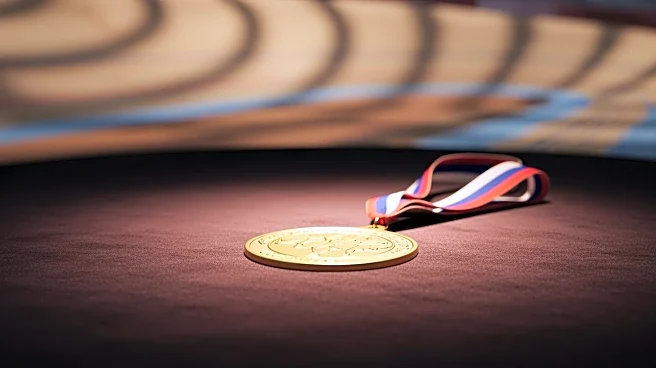What's Happening?
Australian cyclist Paige Greco, a celebrated Paralympic gold medalist, has passed away at the age of 28. According to a joint statement from the Australian Paralympic Committee and the Australian cycling
federation, Greco died at her home in Adelaide following a sudden medical episode. Greco, who was born with cerebral palsy, achieved significant success in her sporting career, notably winning the first gold medal at the pandemic-delayed Tokyo Paralympics in 2021. She set a world record in the women's C1-3 3,000-meter individual pursuit and also secured bronze medals in the road race and time trial. Her career in para-cycling began after she transitioned from para-athletics, quickly making a mark with multiple world championship titles and World Cup medals.
Why It's Important?
Paige Greco's untimely death is a significant loss to the Paralympic community and the world of sports. Her achievements not only highlighted her exceptional talent but also served as an inspiration to athletes with disabilities worldwide. Greco's success brought attention to para-cycling and the broader Paralympic movement, promoting inclusivity and the recognition of athletes with disabilities. Her passing is a reminder of the fragility of life and the impact that athletes can have beyond their sporting achievements. Greco's legacy will likely continue to inspire future generations of athletes, encouraging them to pursue their dreams regardless of the challenges they face.
What's Next?
The Australian Paralympic Committee and the cycling community are expected to honor Paige Greco's memory through tributes and possibly establishing initiatives to support young athletes with disabilities. Her family and the sporting community will likely hold memorial services to celebrate her life and achievements. The impact of her death may also prompt discussions on health monitoring and support for athletes, ensuring their well-being both during and after their sporting careers.
Beyond the Headlines
Paige Greco's story underscores the broader cultural and societal shifts towards greater inclusivity and recognition of athletes with disabilities. Her achievements challenged stereotypes and demonstrated the potential of athletes with disabilities to excel on the world stage. Her life and career may continue to influence policies and programs aimed at supporting para-athletes, fostering a more inclusive sporting environment. Additionally, her passing may lead to increased awareness and research into the health and well-being of athletes, particularly those with disabilities.










